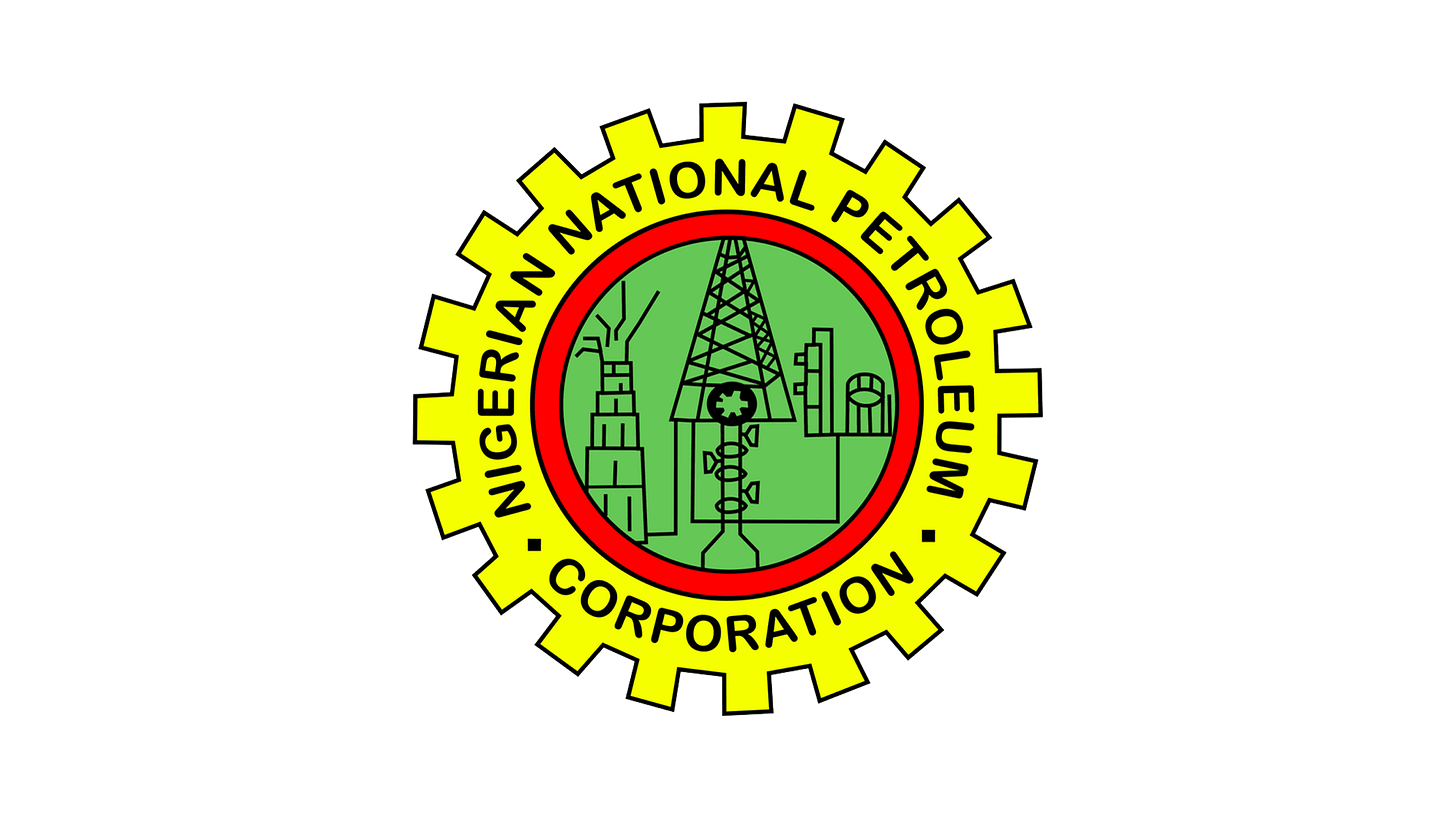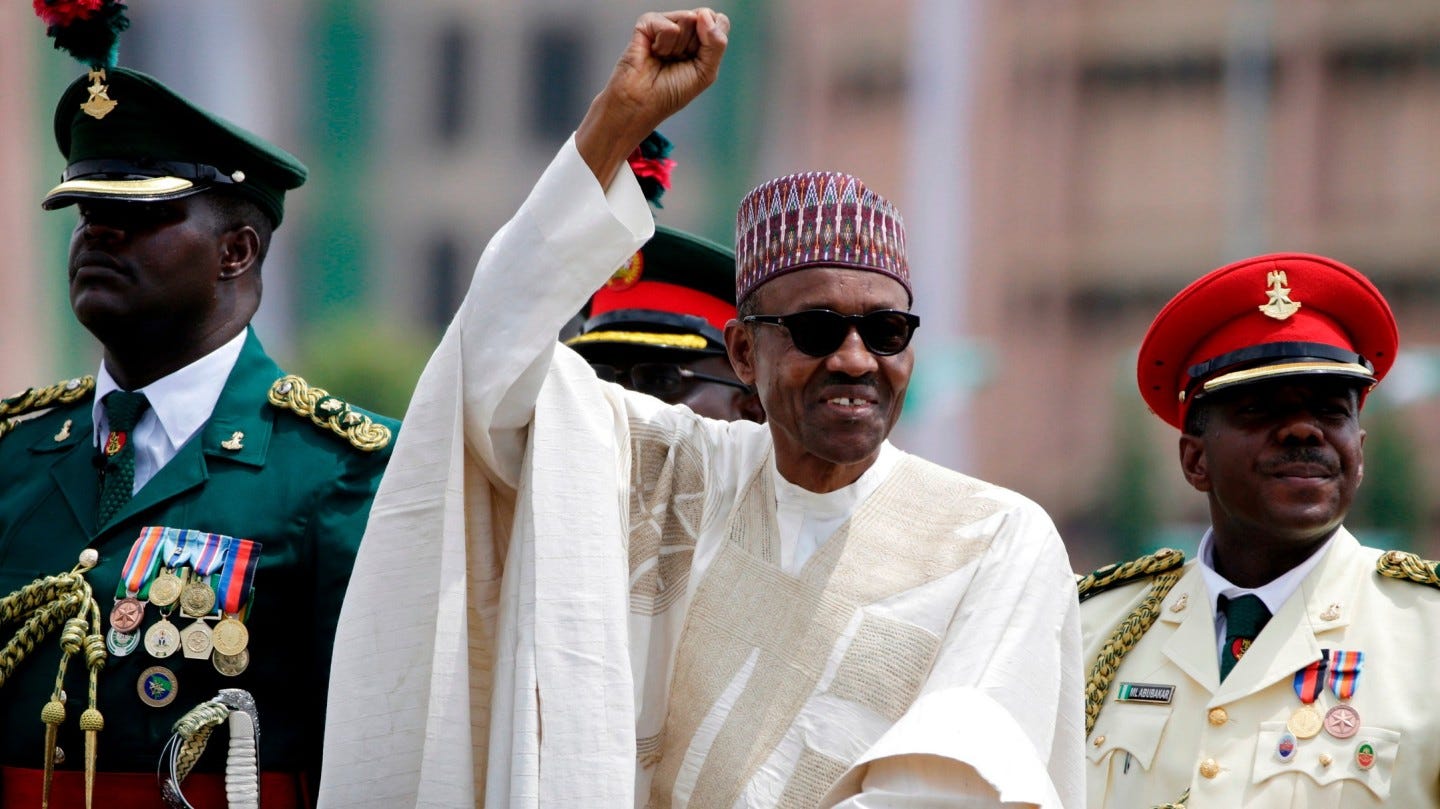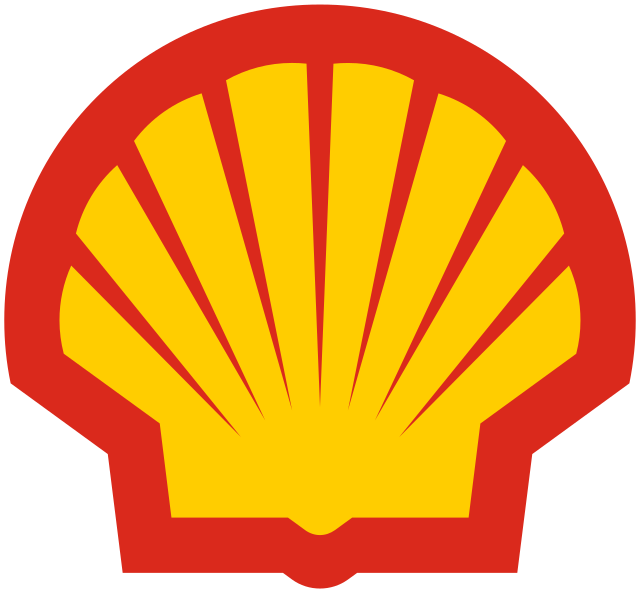Bursting Badenoch's Bubble — PART IX
The NNPC — More Powerful Than the Government?
As NOI’s battle with the oil marketers ensued, other internal battles were taking place within the government.
The Finance Ministry often found itself in an uncomfortable position. Of the revenues required to fund the federal budget, 70 percent was made up of payments from the oil sector. This was the bone of contention between the Finance Ministry, the Ministry of Petroleum Resources, and “its mammoth parastatal,” the Nigerian National Petroleum Corporation (NNPC).
The NNPC is arguably the country’s most powerful government agency of all time.
It is also the least transparent and accountable.
This has been the case since 1977, when it was set up by the military government to be accountable to the Head of State, who in some administrations also assumed the role of Minister of Petroleum Resources.
One such individual in more recent times was the belatedly deceased Muhammadu Buhari. He initially served as Federal Commissioner (now Minister) for Petroleum and Natural Resources from 1976−78 under then Head of State Olusegun Obasanjo, during which $2.8 billion went missing[i] from an NNPC account in Midlands Bank [London][ii] (now part of HSBC).
According to the former Foreign Affairs Minister in the late Sani Abacha’s military government, Tom Ikimi, it was also the reason why he ousted the Shehu Shagari-led civilian government at the end of 1983 / early 1984 in order to prevent his indictment. Buhari was subsequently jailed by Babangida for three years and four months[iii] when he was ousted by the latter’s coup.
Buhari’s dealings while effective Minister for Petroleum and Natural Resources set the tone for $16 billion of government funds that went missing during the Shagari regime from 1979−1983 (or 20 percent of revenues[iv]), owing to fraud, the overbilling of contracts and theft of crude oil with the complicity of agents from — you guessed it! — the NNPC. This disclosure was made by the Minister of Petroleum and Energy (1984−85), the late Tam David West.
The Buhari administration, in his second coming as a civilian President, was simultaneously Minister of Petroleum Resources for practically his entire time in Aso Rock.
He also couldn’t account for another missing $2.5 billion, according to the former Deputy National Publicity Secretary of the All Progressives Congress (APC), Timi Frank. Frank pointed to recently (2020) revealed documents showing how 48 million barrels of Nigeria’s Bonny Light Crude, valued at $2.5 billion, was stolen and sold in China by some NNPC officials in connivance with top functionaries of the Buhari administration. [v]
So much for the impassioned defense of Buhari by his friend, the Archbishop of Canterbury, Justin Welby, who pushed back against former Tory PM David Cameron’s claim that Afghanistan and Nigeria are two “fantastically corrupt”[vi] countries:
“But this particular president [Buhari] is not corrupt… he’s trying very hard,”[vii]
Buhari was said to have been “shocked” by Cameron’s statements given his manifesto claim that he would tackle corruption.
Perhaps he meant “corruption for thee, but not corruption for I.”
I mean “who knows, eh?”
Anyway, returning to the opaque NNPC.
NOI discovered, upon commencing her first stint as Finance Minister in 2003, that the NNPC had absolute control of the country’s oil and gas resources. Moreover, she discovered that the Finance Ministry had little-to-no role in the management of the country’s oil industry. There were scant statutory links between the latter and the Ministry of Petroleum Resources — save for the Permanent Secretary of the Ministry of Finance being on the board of the NNPC — a board which met irregularly.
The remit of the Finance Ministry was responsibility for meeting any cash call obligations that covered Nigeria’s share of oil production costs in its joint-venture agreements with major oil firms such as ExxonMobil, Shell and Total. The NNPC and Ministry of Petroleum Resources were responsible for setting production numbers, oil benchmark prices and revenue parameters for the budget.
The Finance Ministry was simply a recipient of whichever revenues were budgeted for government expenditure from the oil and gas sectors, and thus had no control over the sales, marketing or proceeds of these activities. These were usually discussed at the monthly Federation Accounts Allocation Committee (FAAC) meetings chaired by the Minister of State Finance (Deputy Minister of Finance), which brought together all thirty-six states, the government, and major revenue-generating agencies — namely the Federal Inland Revenue Service (FIRS), NNPC and the Custom services.
In 2012, beyond the subsidy oil fraud, tensions emerged during FAAC meetings where discrepancies were identified, meaning budgets could not be fully funded. This fluctuated month-to-month but upon review by the Finance Ministry, the average monthly shortfall was about N160 billion ($1 billion). This was attributed to oil theft and pipeline vandalization which drew on sophisticated underwater equipment, and in turn, led to large shutdowns of pipelines carrying petroleum products. This incurred an average daily loss of 400,000 barrels of oil.
As an aside, I found myself wondering if ‘vandalization,’ is a mere narrative circulated in the media and in real terms, was subtext for more oil theft. After all, it is inexpensive to print media narratives, but every precious drop of oil conceded, though documented as an official loss for the government and civic society, would be anathema for vested interests.
In any case, a June 27, 2012, article in Oil Change International quoted NOI as saying that,
“Nigeria is losing $1 billion a month in oil theft.”[viii]
Beyond oil theft, the NNPC’s opacity enabled it to make deductions to itself from total budgeted revenues for pipeline and other repairs, as well as oil and kerosene subsidy payments. The implication of this is that fraud would likely have been ongoing while past payments were under investigation. If this is so, then the Finance Ministry under NOI was always fighting a losing battle. Despite the best of intentions, the battle against the NNPC principalities was akin to a dog chasing its tail in endless circles.
The shortfalls became so intolerable that state Commissioners of Finance and Accountant Generals staged walkouts on several occasions when presented with unconvincing figures reported by the NNPC.
NOI requested several meetings with the NNPC and the Finance Ministry to address the issue and gain some accountability from the former. However, in one of these meetings, the then-Group Managing Director (GMD) of the NNPC, Austen Oniwon, challenged NOI’s right to request information on production volumes and sales, or to even try to hold the NNPC accountable for due funds. So aggressive was he towards her during one particular meeting (which also included her colleagues from the Finance Ministry — such as the Director-General of the Budget Office), she was left with no choice but to walk out, thereby avoiding tempers from fraying further.
Oniwon is a curious individual.
His defensiveness may have been connected to his dealings with Wale Tinubu, CEO of Oando and nephew of current President Bola Tinubu. Despite NNPC’s opacity, media reports emerged that on July 18, 2010, Oniwon met with Wale Tinubu who alongside his CEO of Oando role, was also chairman of the Major Oil Marketers Association (MOMAN). This is a revealing extract from the report:
“In a sharp departure from the past where the industry had to wait for fuel crisis to occur before stepping up remedial measures, the meeting resolved to implement some far reaching measures aimed at squelching any potential threat to free supply and distribution of petroleum products.”[ix]
For what it is worth, fuel scarcity is an effective form of ransoming government to pay fuel subsidy payments. As a reminder, the fuel subsidy bill at the time NOI left her post in 2006 was N261 billion or $2 billion. However, in the thirteen months following W. Tinubu’s and Oniwon’s meeting, almost N1.3 trillion or $8.4 billion had been paid out to the former and over 143 other oil marketer firms. It might seem like a rhetorical question, but,
“Do you believe in coincidences?”
If not, then it may explain the timing of Oniwon and W. Tinubu meeting — two months after Oniwon became GMD on May 16th, 2010.
Maybe he knew he was on the clock and had to maximize what time he had.
Despite his term having been due to expire in April 2011, President Jonathan extended the term until June 2012. It was in the milieu of reforms, on June 26, 2012, a day before Oil Change International quoted NOI disclosing the $1 billion monthly oil theft, that Jonathan sacked Oniwon and his colleagues: Group Executive Directors Michael Arokodare (Finance and Accounts), Philip Chukwu (Refineries and Petrochemicals) and Billy Agha (Engineering and Technology).
Leaving nothing to the imagination, a spokesman for the president stated that the sack of the NNPC top hierarchy was to:
“Further strengthen the ongoing reforms and transformation of Nigeria’s Petroleum sector, and in furtherance of efforts to achieve greater transparency and accountability in government.”[x]
Advantage NOI.
Or perhaps not.
Despite changes at the helm of the NNPC, the oil theft was still ongoing.
The situation eventually spilled over to the National Economic Council (NEC), where state governors demanded solutions to oil-theft and the revenue loss issue. Rumors of vested interests proliferated — much of which was said to have included former and serving military officers, and former employees of oil firms all being complicit in the theft.
Despite attempting another joint task force it appeared a vain endeavor. Take for instance the taskforce’s composition: former Delta State Governor, Emmanuel Uduaghan, the Bayelsa State Governor, extant oil company employees, paramilitary agencies; and representatives from the following ministries: Finance, Justice, Petroleum Resources and Defense. Some of these personnel would have either been investigating their own fraudulent practices, and / or those of their associates, some of whom may have been political godfathers or ‘destiny helpers.’ It is little wonder that besides some nominal instances of catching oil thieves, no definitive solutions emerged.
The atmosphere in Nigeria became enveloped with accusations, suspicions and finger pointing. And the ground was fertile for the saga that would emerge: the chronicles of missing gargantuan oil revenues disclosed by the then-Central Bank Governor Sanusi Lamido Sanusi.
[i] Nwachukwu, John Owen, “Alleged $2.5b Stolen Crude: President Buhari Govt Accused of Complicity,” Daily Post, July 30th, 2020. Url: https://dailypost.ng/2020/07/30/alleged-2-5b-stolen-crude-president-buhari-govt-accused-of-complicity/
[ii] Onoiribholo, Francis, “Nigeria: Buhari Was Indicted On U.S. $2.8 Billion in Oil Money Scam — Ikimi,” January 19th, 2015. Url: https://allafrica.com/stories/201501200086.html
[iii] “Buhari — the Austere Nigerian Military Ruler Who Defeated a Sitting President,” July 13th, 2025. Url: https://www.bbc.co.uk/news/articles/c89781qxnzdo
[iv] Pérouse De Montclos, Marc-Antoine, “Oil Rent And Corruption: The Case of Nigeria,” Ifri Sub-Saharan African Center, November 2018, Url: https://horizon.documentation.ird.fr/exl-doc/pleins_textes/2023-08/010087334.pdf, cit., Ellis, Stephen, This Present Darkness: A History of Nigerian Organized Crime (Hurst, 2016) pp. 117 and 127
[v] Nwachukwu, “Nigeria: Buhari Was Indicted On U.S. $2.8 Billion in Oil Money Scam — Ikimi,”
[vi] “David Cameron Calls Nigeria and Afghanistan ‘Fantastically Corrupt,”’ May 10th, 2016. BBC NEWS, Url: https://www.bbc.co.uk/news/uk-politics-36260193
[vii] Ibid
[viii] Rowell, Andy, “Nigeria Loses $1 Billion a Month in Oil Theft,” Oil Change International, June 27, 2012, Url: http://priceofoil.org/2012/06/27/nigeria-loses-1-billion-a-month-in-oil-theft
[ix] “NNPC, Major Marketers Set to Stamp Out Fuel Scarcity,” Vanguard Newspaper, July, 19, 2010. Url: https://www.vanguardngr.com/2010/07/nnpc-major-marketers-set-to-stamp-out-fuel-scarcity/
[x] “Jonathan Fires NNPC Boss, Austen Oniwon, Names Andrew Yakubu as Replacement,” Premium Times, June 26th, 2012. Url: https://www.premiumtimesng.com/news/5771-jonathan_sacks_nnpc_boss.html?tztc=1
















